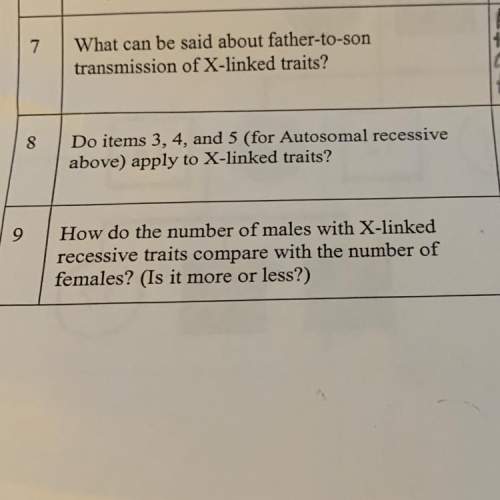Bacteria in your intestines are an example of mutualism if they
a. make you sick. b. have no e...

Biology, 21.01.2020 23:31, markusovaevelyn532
Bacteria in your intestines are an example of mutualism if they
a. make you sick. b. have no effect on you. c. are destroyed by digestive juices. d. you break down food.

Answers: 3
Other questions on the subject: Biology

Biology, 22.06.2019 02:10, eriks1818
Scenario #2 in 2001, a population of 2,500 poison dart frogs lived in the amazon rain forest. due to increased deforestation, the population dwindled to 25 frogs in 2019. new government regulations were enacted in 2022, successfully putting an end to the deforestation of the amazon rain forest. once deforestation was stopped, the poison dart frog population was able to recover. by 2050, the population reached 8,000 frogs, of that population, 20 are homozygous recessive for being spotted (ss genotype). q2- ? q- p- p2- 2pq-
Answers: 2

Biology, 22.06.2019 03:00, Braxtonw875
In a cross between individuals of a species of tropical fish, all of the male offspring have long tail fins, and none of the females possess the trait. mating two of the f1 fish fails to produce females with the trait. explain the inheritance pattern of the trait.
Answers: 3


Biology, 22.06.2019 06:30, gordonandrea313
What molecules does hemoglobin decay into over time
Answers: 1
Do you know the correct answer?
Questions in other subjects:



Mathematics, 13.12.2019 06:31

History, 13.12.2019 06:31












